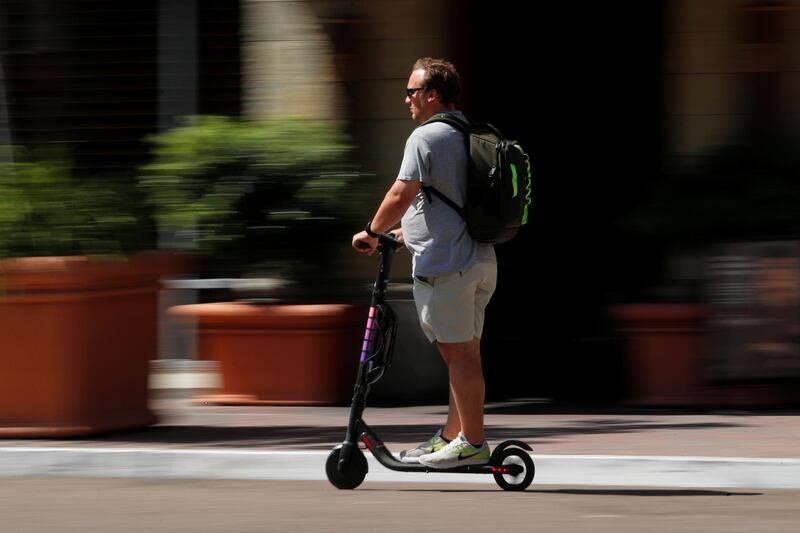We have had a couple of glimpses of the future of travel and transport over the past few days. In Dubai, figures released this week gave us a snapshot of overall trends and showed that more residents are using public transport, more of the time. An average of 1.6 million journeys are being made every day on the emirate's network of buses, trams, taxis, the city's metro and even its ferries. The Roads and Transport Authority figures reveal a jump in overall passenger numbers, with close to 300m journeys being made on publicly owned transport in the first six months of the year.
These figures also take into account the newer elements of the transport portfolio, such as ride-hailing companies like Uber and Careem, and even car rental companies like Udrive and ekar, which allow users to rent cars by the minute.
The conventional wisdom surrounding transport is being challenged every day by these new additions, even though we remain some distance from hailing flying taxis or using jet-powered hoverboards to go about our daily business, as daredevil Franky Zapata did this week when crossing the English Channel.
But there is no doubt that micro-mobility, ride-hailing and car-sharing are the new forces in transportation. Indeed, writing on these pages earlier this year, columnist Mustafa Alrawi argued that car-sharing companies are helping us along the road to an age when the idea of owning your own car will seem about as "archaic as a pony and trap does to us today".
We can also be certain that metropolitan transport systems of tomorrow will not only rely on the traditional mix of buses, trams, trains and taxis. They are likely to rapidly expand through the use of legal and plentiful transport-sharing apps, as well as e-scooters, which are a potentially powerful micro-mobility solution to a broader problem.
To this end, Abu Dhabi's transport authority announced this week that it will allow electric scooters to be used in a limited geographical area of the city for a trial period, which will run for up to 12 months. The Integrated Transport Centre in Abu Dhabi said that they are an "efficient, environmentally friendly means of transport for daily commutes". Careem has begun discussions with a viewing to offering e-scooter rentals in the capital. The trial period will also be used to assess the long-term safety and viability of such devices.
Other parts of the world have struggled with this aspect of the sudden arrival of e-scooters. Last month, Emily Hartridge, a well-known YouTuber and TV presenter, died after being hit by a lorry in London while riding her e-scooter. Earlier this week, another accident in the UK claimed the life of man riding an electric skateboard.
The authorities in the UAE are right to approach the subject with caution and to look minutely at whether they can be used safely outside pedestrianised zones or traffic-controlled areas such as the Corniche.
Personally, I have my doubts that they can – especially in cities where the cycle path network is relatively small and paved pedestrian areas can quickly run out. E-scooters are also near-silent, can reach relatively high speeds and few people wear safety helmets when using them. They are also too big and too fast to be used in pedestrian areas and yet too small to be ridden on roads.
In several European cities, particularly in parts of the Nordic countries and in continental Europe, rental e-scooters have also become go-anywhere, dump-anywhere devices that are too often tossed aside rather than properly parked when a journey is completed.
That’s why I am glad that neither Abu Dhabi nor Dubai is rushing too quickly towards the e-scooter revolution. And it is also why I am confident that at the end of the trial period in the capital, the authorities will come up with clear guidelines for their use, which will be fair to both the consumer and the commercial enterprises seeking to license their use.
Our world is changing quickly, but we mustn’t be blindsided by the apparent inevitability of disruption. Innovation must be matched with careful and thoughtful regulation and, indeed, deregulation where appropriate. E-scooters could help reduce congestion and wean us away from making unnecessary trips in our cars, but we must properly define their role before their widespread adoption.
Nick March is an assistant editor-in-chief for The National





